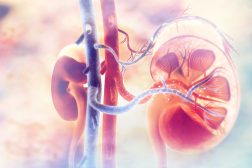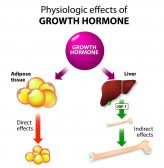Definition
noun, plural: endoplasms, endoplasma
The inner, granule-rich, dense part of the cytoplasm of a cell
endoplasmic
adjective
Of, relating to, pertaining to endoplasm
Supplement
The cell’s cytoplasm of certain species may be divided into endoplasm and ectoplasm. The endoplasm refers to the inner dense part of the cytoplasm and is often granulated. In contrast, the ectoplasm is the clear outer part of the cytoplasm. Furthermore, the endoplasm is adjacent to the endoplasm whereas the ectoplasm is adjacent to the plasma membrane. The endoplasm is separated from the nucleus by the nuclear envelope.
The granules in the endoplasm pertain to the small particles suspended within the endoplasm, e.g. secretory vesicles. Apart from granules, the endoplasm may also contain water, inorganic ions, carbohydrates, lipids, enzymes, amino acids, nucleic acids, etc. It also houses the endomembrane system. Thus, it is metabolically active, i.e. involved in various metabolic processes, e.g. cell respiration, protein synthesis, and cell division. Vesicles are shuttled between organelles via intracellular transport system.
In amoeba, the varying consistencies of the endoplasm and ectoplasm are useful in the formation of pseudopods, which are used for locomotion.
Word origin: Greek endo– (within) + Greek -plasm(a) (that which has form)
Synonym(s):
- entoplasm (protistology)
Compare:
See also:
- amoeba
- Amoebozoa
Mentioned in:







